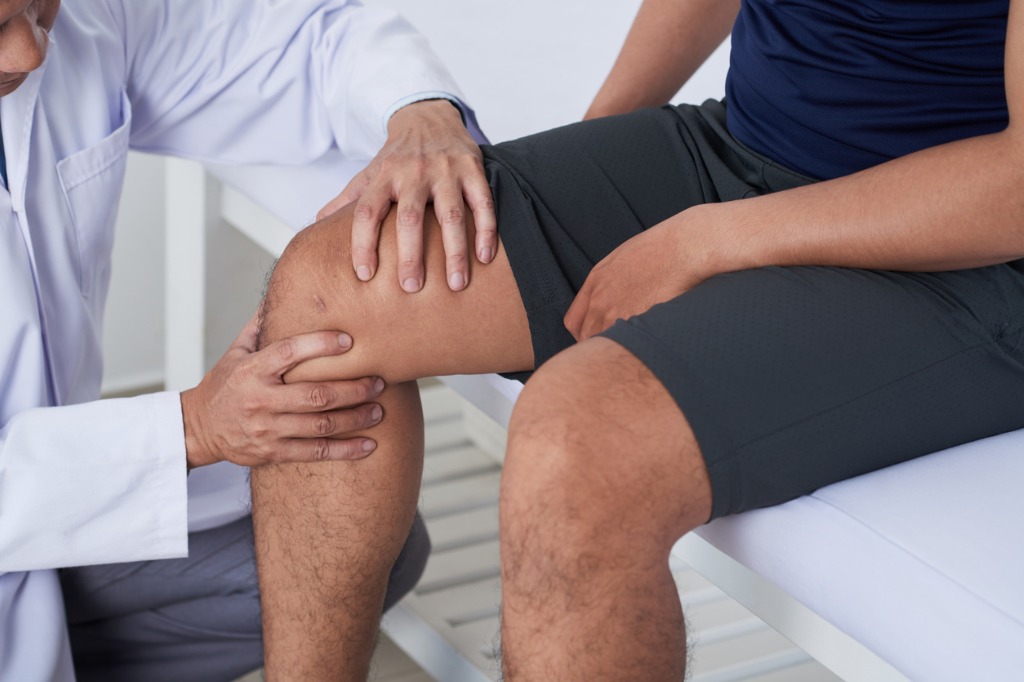
Can You Regenerate Knee Cartilage Naturally?
Knee cartilage is one of the essential protectors within the knee joint. Knee cartilage covers the ends of the bones and acts as a natural shock absorber. As a result, knee cartilage allows for the joints in your knees to move smoothly and with ease. Unfortunately, knee cartilage usually won’t heal on its own. Although sometimes difficult, there are ways to naturally repair, replace and rebuild the cartilage in our knees!
Knee Pain Categories
To best understand the proper healing measures, we must first understand the pain we are experiencing. Knee pain can be split up into three main categories: acute, arthritis, and overuse.
- Acute pain can be the most common type of knee pain. It is usually caused by sprains or strains on the knee.
- Arthritis is categorized as joint inflammation and typically comes in two forms: osteoarthritis and rheumatoid arthritis.
- Overuse is any injury as a result of microtrauma, typically due to performing repetitive motions.
For more information on knee pain, click here!
How to Rebuild Knee Cartilage
Inflammation is the main reason why our joints stop working as optimally as they should. One of the best ways to rebuild knee cartilage naturally is to consume foods that will help eliminate inflammation and strengthen your cartilage. These foods include things like:
- Fish
- Legumes
- Oranges
- Brussels sprouts
Fish such as tuna can be a great source of magnesium. Magnesium is needed to absorb hyaluronic acid in your body. Hyaluronic acid is the substance your body produces to retain water to keep your connective tissues well lubricated.
Legumes are high in protein, which is why they help replenish the collagen our body needs to rebuild the cartilage in our knees. Not only are they high in protein, but they also have amino acids and lysines, both of which are essential when trying to rebuild knee cartilage naturally.
Oranges are beneficial when trying to regain cartilage in the knee. This is because oranges are high in vitamin C. Vitamin C is a massive component of our cartilage and helps promote cellular healing within our bodies.
Brussels sprouts have an abundance of Vitamin K, which can be excellent for bone and joint health. In addition, the anti-inflammatory properties in Brussels sprouts can help strengthen the cartilage in our knees.
As you can see, switching up your diet can easily promote healthy joints and strengthen your cartilage.
Preventing Knee Cartilage Damage
As we get older, it can sometimes be challenging to rebuild our knee cartilage, so the best way to avoid this problem is to prevent it before it even starts. One way to preserve our knee cartilage is by doing various exercises to help strengthen our knees.
When working with an injured knee or damaged cartilage, it is crucial to keep your focus on low-impact exercises such as riding a bike, swimming, or going for a brisk walk. Likewise, It is best to avoid high-impact activities such as running or jogging, jumping rope, and playing sports such as basketball or football. Instead, here are some quick at-home exercises you can include in your next workout:
- Leg raises
- Hamstring Curls
- Wall squats
- Calf raises
- And more! Click here for a list of exercises you can try.
Joint Therapy
When at-home and natural methods don’t work, joint therapy may be in order. Rejuvinix offers a variety of personalized treatments to help you find knee pain relief and increase mobility. In addition, Rejuvinix provides high-quality, non-surgical treatments, which means no downtime! Rejuvinix treatment options include:
Contact Rejuvinix Today
Rejuvinix takes pride in its non-invasive treatments to provide you with a better quality of life free of pain. If you or a loved one is experiencing knee or joint pain, you can book an appointment at one of our three locations here.